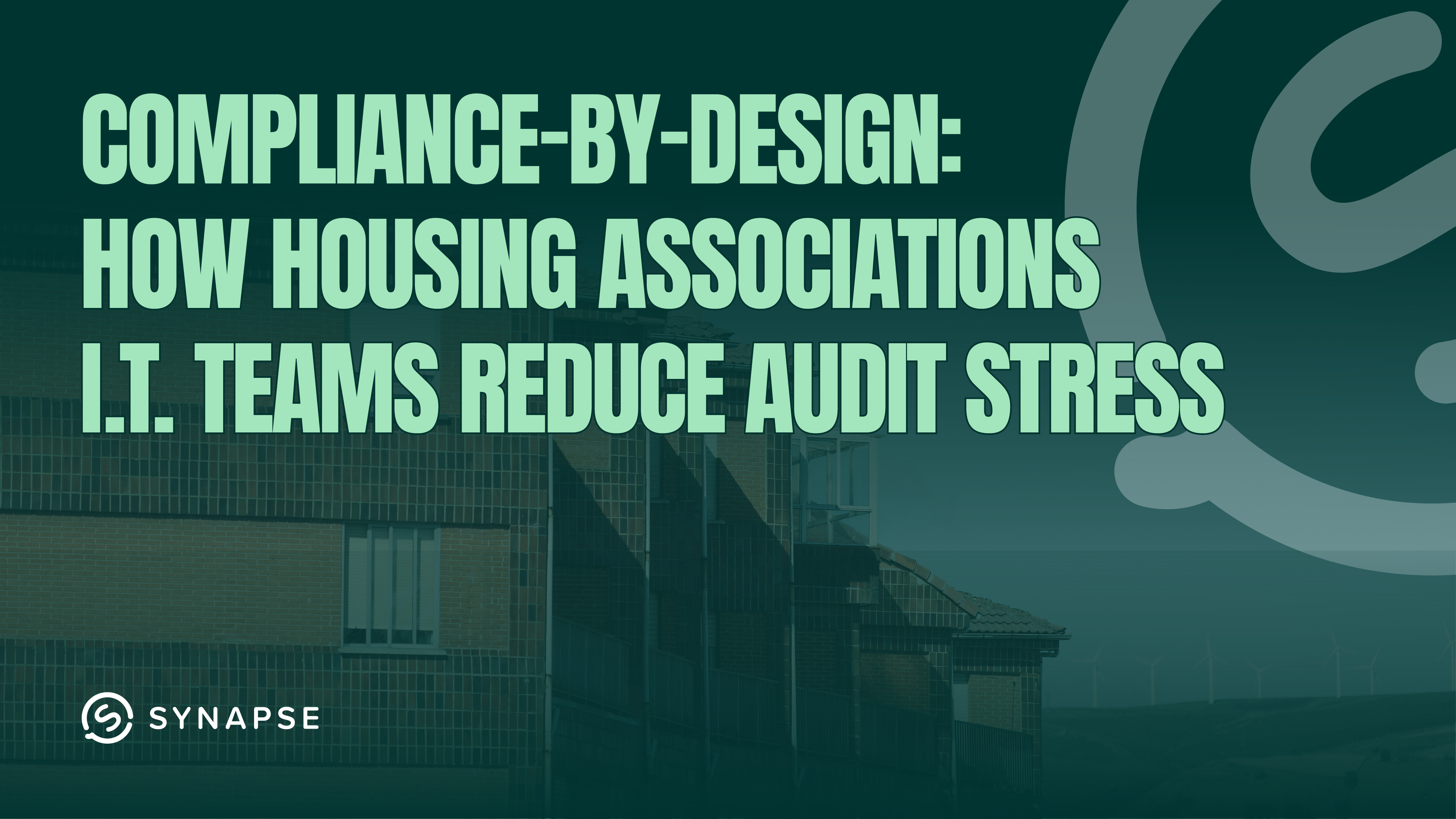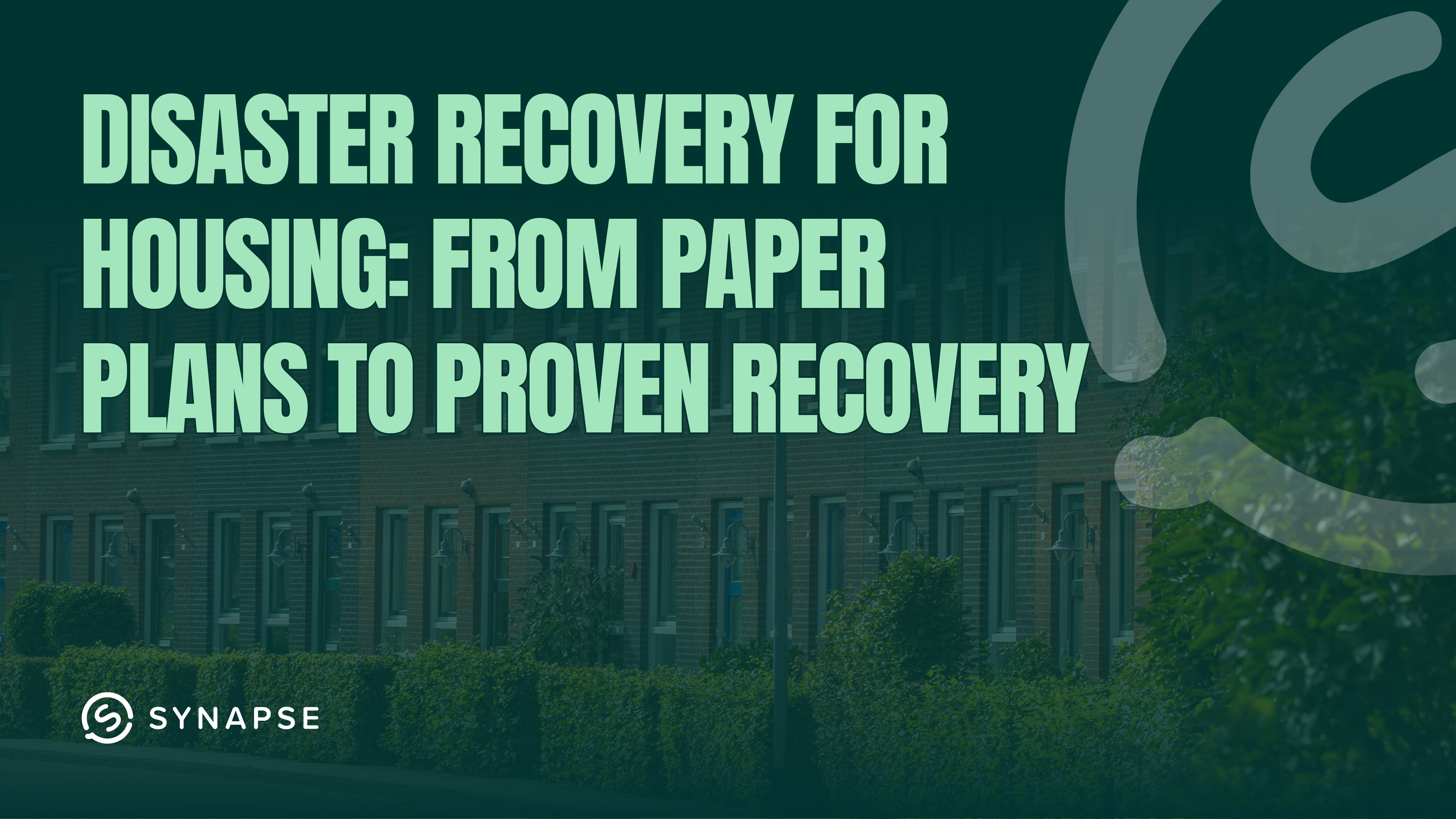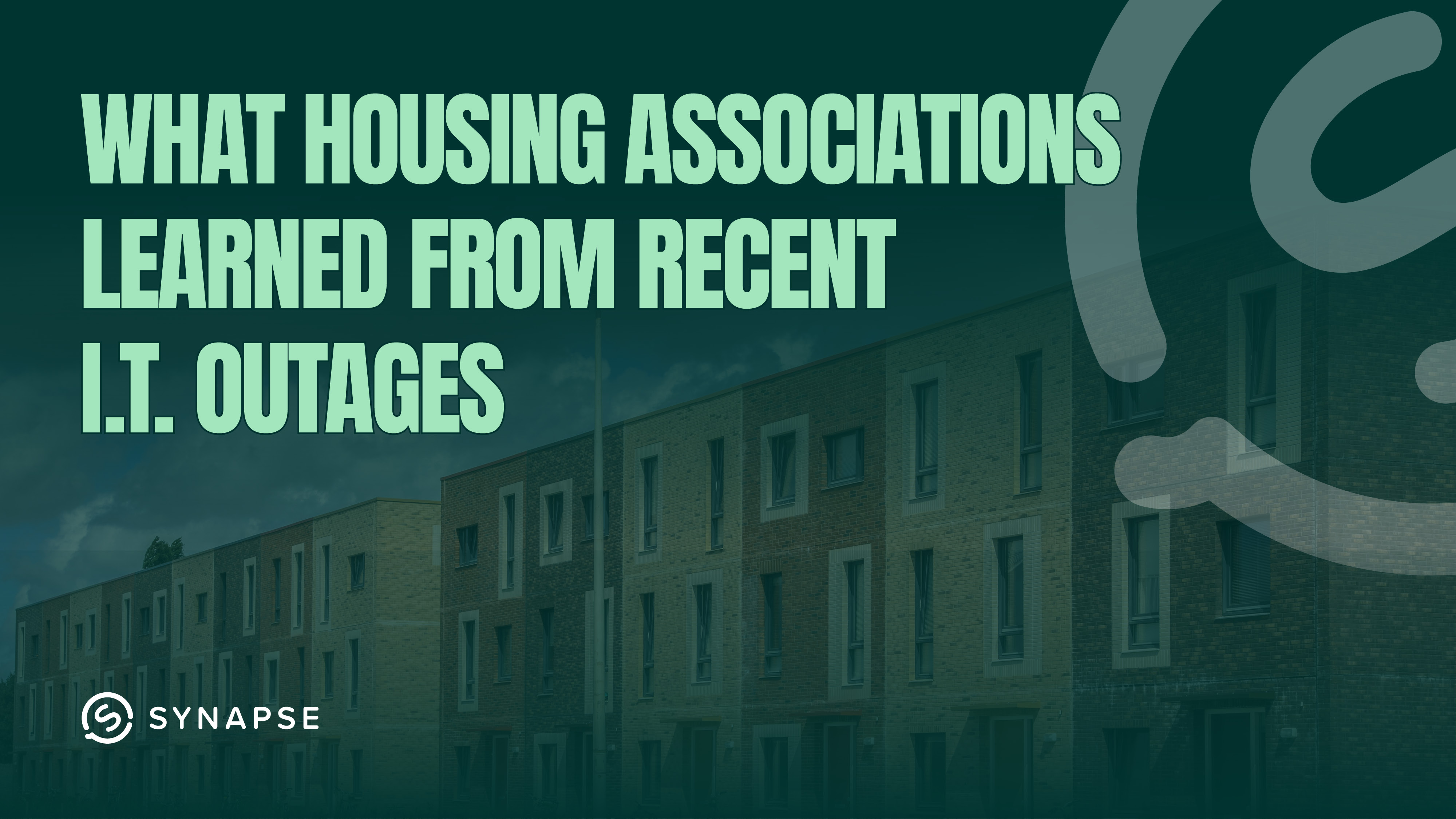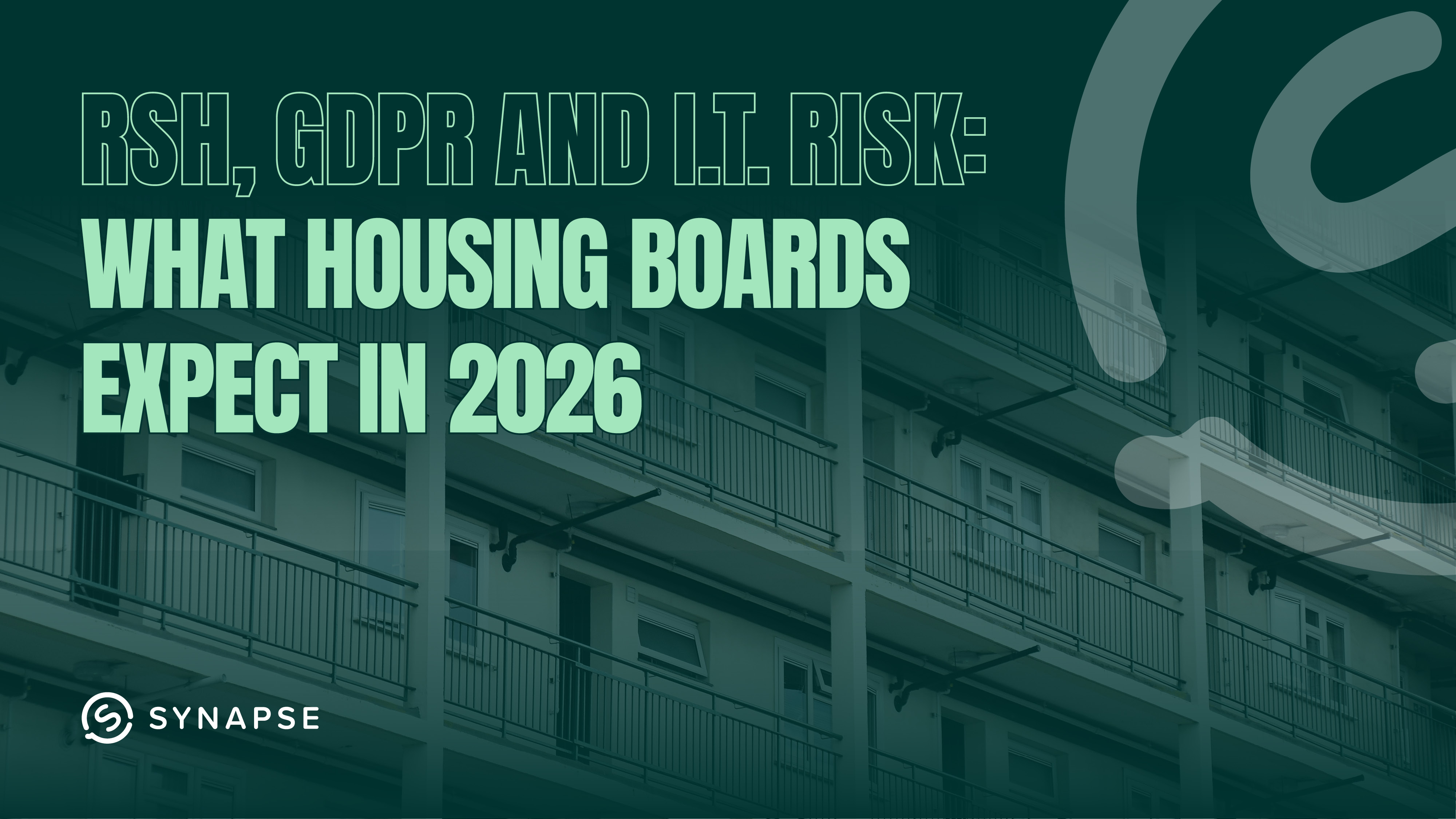.png)
In every sector, data has become the lifeblood of daily operations - and the target of constant threat. Whether you’re running a hospital, managing client files, overseeing housing systems, or safeguarding financial transactions, one truth remains: when your data stops, your business stops. Healthcare, legal, housing, and finance organisations all face the same risks, yet too often they tackle them in isolation. Imagine the progress if these industries shared their defences, recovery strategies, and compliance lessons.
With more than 25 years of experience supporting enterprises across these critical sectors, we’ve seen first-hand how much each can learn from the other. From healthcare’s resilience under pressure to finance’s disciplined compliance, every industry holds valuable insight. In this article, we explore how cross-sector collaboration can strengthen data protection, enhance cyber resilience, and keep organisations both secure and compliant in a rapidly evolving threat landscape.
The Shared Stakes of Data Protection
Data is now both an asset and a liability. The same information that fuels innovation can, if exposed, destroy credibility overnight. The Information Commissioner’s Office (ICO) has repeatedly warned that poor cyber hygiene and lack of continuity planning are among the top causes of breaches in regulated sectors.
Whether you are managing patient records, client files, tenant details or transaction data, the risks are consistent — unauthorised access, service disruption, and reputational damage.
Common challenges cut across industries:
• Legacy systems that resist integration with modern defences
• Regulatory pressure that evolves faster than infrastructure can adapt
• Skills shortages and stretched internal teams
• Data sprawl across on-premise and cloud environments
The difference lies not in the threats themselves but in how each sector responds.
Sector Approaches to Protection
Healthcare
The NHS has made significant strides in securing digital health records through the Data Security and Protection Toolkit and centralised frameworks. But hospitals and trusts still face daily challenges from outdated clinical systems to ransomware targeting critical care infrastructure. Their focus on rapid recovery and life-critical uptime offers valuable lessons in resilience and preparedness.
Legal
For law firms, the sensitivity of client information demands absolute confidentiality. Yet, as firms embrace hybrid working and cloud platforms, they face growing risks from file sharing, misdirected emails, and insider threats. The legal sector excels at defining governance policies and access controls but can often lag behind in automation and real-time monitoring.
Housing
Housing associations hold vast amounts of personal data on tenants, staff, and suppliers. Many operate decentralised I.T systems across multiple sites, making consistent protection a challenge. Budget constraints and limited technical resource mean that housing leaders have learned to balance pragmatism with compliance, building steady progress rather than overnight transformation.
Finance
Financial institutions set the gold standard for data security and compliance. FCA regulations have pushed the sector to adopt multi-layered defence, proactive risk monitoring, and detailed continuity plans. However, strict oversight can slow innovation. As other sectors embrace more flexible cloud models, finance can learn from their agility while offering valuable lessons in structure and accountability.
Lessons That Transcend Sectors
While regulations may differ, effective data protection shares universal principles. Each industry can gain strength by observing how others tackle three key areas: culture, governance, and collaboration.
1. Security Culture Over Technology Alone
Technology without the right mindset is fragile. Healthcare’s investment in staff training and awareness programmes shows how culture underpins protection. Legal and financial firms can replicate this human-first approach, ensuring that every employee understands their role in safeguarding information.
2. Governance and Automation
The legal sector’s emphasis on governance aligns perfectly with finance’s regulatory precision. By combining this with the automation seen in modern healthcare I.T, organisations can reduce manual risk, standardise compliance, and achieve real-time assurance rather than retrospective auditing.
3. Shared Intelligence
Cybercriminals do not limit themselves to one industry, so why should our defences? The housing sector’s collaborative approach to knowledge sharing from local authority networks to national forums could benefit healthcare and legal leaders. By pooling data on threats and recovery patterns, organisations can strengthen collective resilience.
Building a Unified Model for Data Protection
The most mature organisations treat data protection not as a compliance task but as a foundation for trust and continuity. The best protection strategies combine proactive prevention with rapid recovery. This requires three modern pillars:
• Zero Trust frameworks: verifying every user, every device, every time
• Secure cloud and backup: ensuring continuity even when systems fail
• Continuous monitoring and recovery: detecting and containing threats before they escalate
Each sector is moving in this direction at its own pace, but the trajectory is clear. The future of data protection is adaptive fluid, intelligent, and shared.
How Synapse Helps Organisations Protect, Adapt and Recover
At Synapse, we believe technology should empower, not impede. Data should be as secure as a vault, and systems as dependable as sunrise. But your thinking should remain boundless. That’s why we design adaptive protection that scales with your business.
Our portfolio aligns with the challenges faced by healthcare, legal, housing, and finance sectors:
• Backup as a Service (BaaS): Automated, compliant, and cost-predictable protection that ensures data can be restored quickly after an incident.
• Cyber Protection as a Service: Continuous threat detection and remediation backed by proven frameworks and expert oversight.
• Disaster Recovery as a Service (DRaaS): Fast, reliable recovery from outages or breaches to keep critical services running.
• Adaptive Cloud: Flexible, secure infrastructure that evolves with regulatory and operational demands.
Synapse helps clients reduce complexity, strengthen compliance, and regain control of their data. We deliver the reliability that lets teams focus on possibility - not risk.
Collaboration is the New Compliance
The future of data protection will not be defined by isolated compliance checklists. It will be built on collaboration between industries that share the same purpose: protecting people, preserving trust, and powering progress.
Healthcare can teach resilience. Legal can offer discipline. Housing can show pragmatism. Finance can model precision. Together, they can create a culture of continuous protection that spans the entire UK economy.
At Synapse, we believe this cross-sector collaboration is not only possible - it’s essential. Because when data is secure, innovation can thrive.
Ready to strengthen your sector’s defences? Talk to the Synapse team today.
Blog & Articles
Posts



